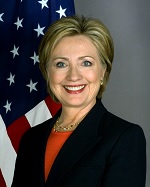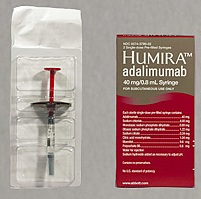Without government control over drug prices, stickers for meds are higher in the U.S. than they are in other parts of the world. But just how much higher?
On average, three times as high as they are in Britain, Reuters reports, citing a new University of Liverpool analysis of the world's 20 top-selling drugs. Those products accounted for 15% of global pharma spending in 2014, bringing in big bucks for companies such as AbbVie ($ABBV), AstraZeneca ($AZN), Merck ($MRK), Pfizer ($PFE) and Roche ($RHHBY).
The difference isn't just in the U.K., though. Researchers found that U.S. prices were consistently higher than in other European markets, too. And elsewhere around the world, U.S. prices came in at 6 times those in Brazil and 16 times higher than average in the lowest-price country--usually India.
 |
| U.S. Presidential candidate Hillary Clinton |
It's just another reason pricing critics are calling for reform and government intervention in the U.S., which lacks spending-control strategies like government negotiations and drug price caps, and leaves pricing to market competition instead. A 5000% price increase by Turing Pharmaceuticals recently prompted presidential candidate Hillary Clinton to unroll plans to fight rising prices, spooking investors and putting a chill on the pharma sector.
Drugmakers, of course, have their justifications for keeping U.S. prices high. And as pharma trade group PhRMA pointed out to the news service, those lofty list prices don't take into account the discounts that insurers snag through "aggressive negotiation."
"The U.S. has a competitive marketplace that works to control costs while encouraging the development of new treatments and cures," Holly Campbell, PhRMA's director of communications, said in a statement.
The U.K., though, sees discounts, too. It employs a body of cost-effectiveness gatekeepers that drugmakers must get past to gain access to the market, and that process often requires offering up price cuts through so-called "patient-access schemes."
PhRMA also contends that while U.S. patients pay more for drugs when they first hit the market, prices decline after drugs go off patent; 90% of all meds prescribed to Americans are now cheap generics, and in Britain, generics make up just over 75% of prescriptions.
 But that argument doesn't apply to biologics--yet. Right now, there's only one lower cost copy of a biologic on the U.S. market, and that's a Novartis ($NVS) version of Amgen's ($AMGN) Neupogen. Therapies such as AbbVie's Humira--the best-selling drug in the world--don't have cheaper competition, though that should change in the coming years; industry-watchers expect Humira knockoffs to eventually rank among the most successful biosimilars out there, a Bloomberg Intelligence survey found in June.
But that argument doesn't apply to biologics--yet. Right now, there's only one lower cost copy of a biologic on the U.S. market, and that's a Novartis ($NVS) version of Amgen's ($AMGN) Neupogen. Therapies such as AbbVie's Humira--the best-selling drug in the world--don't have cheaper competition, though that should change in the coming years; industry-watchers expect Humira knockoffs to eventually rank among the most successful biosimilars out there, a Bloomberg Intelligence survey found in June.
- get more from Reuters
Special Reports: 10 big brands keep pumping out big bucks, with a little help from price hikes | The top 10 most expensive drugs of 2013